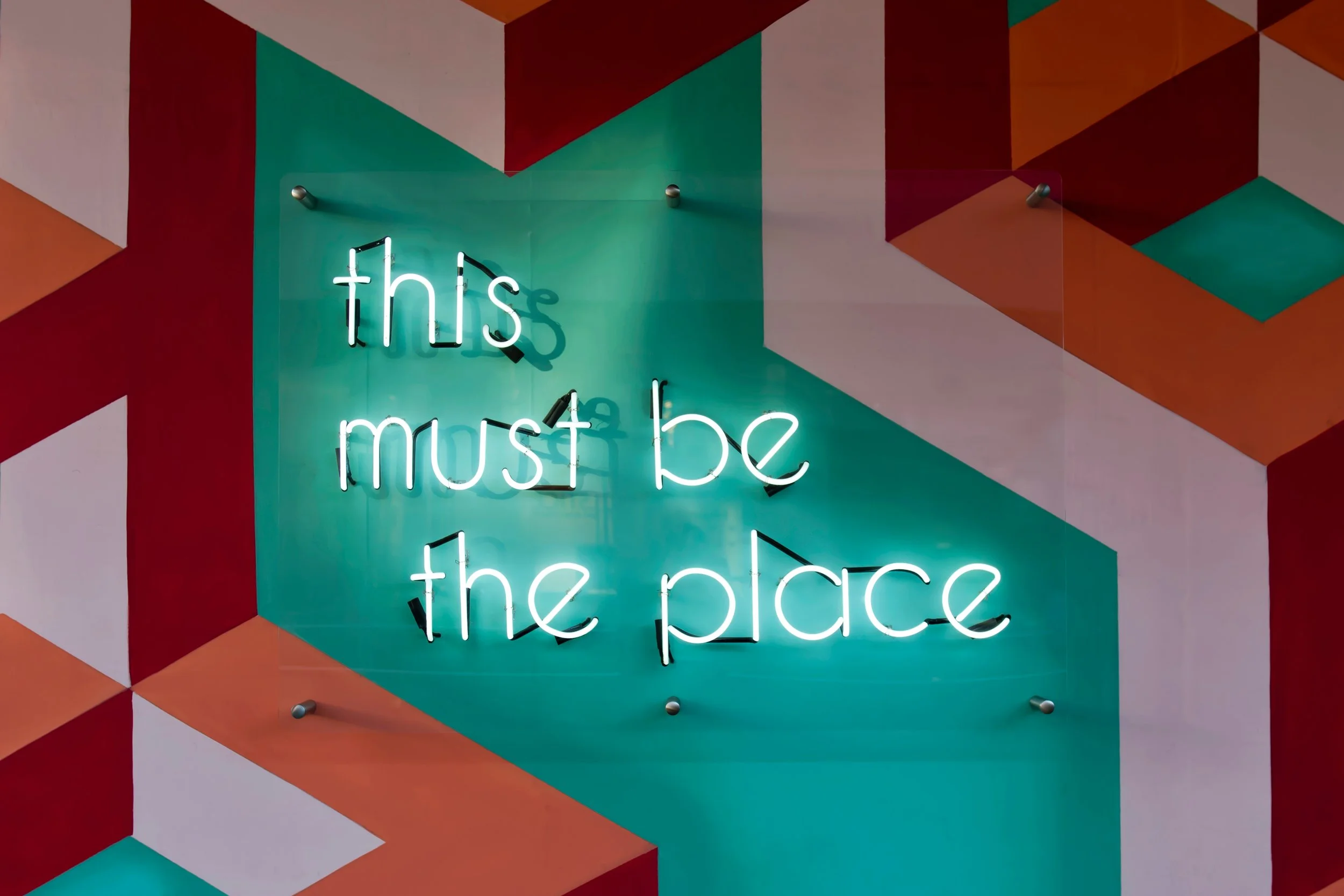How To Have a Conversation: Real-Life Examples from the Wine Industry
Think about the last time you had a great conversation.
Like, a GREAT conversation. Where you felt like you were really seeing the other person. Where you learned something new about them. Where your curiosity was piqued. When it wasn’t “a meeting,” it wasn’t transactional, and you didn’t win or gain anything out of self-interest.
Sounds a bit idyllic, doesn’t it? Or rare, at least?
It doesn’t have to be, which is why I’d like to dwell a bit this week on the art of conversation. It’s been on my mind, having just come from a few days in New York where I was reminded of the kindness of a good conversationalist.
It’s true. Conversation can be kind. I think there are three ways to ensure it happens for you too.
You Are Fully Present. You’ve heard this before, but what are the actual mechanics of making it happen? Your phone is nowhere in sight. Usually you’re seated in full view of your conversation partner(s). You make eye contact, not unwaveringly (because that’s creepy) but steadily and gently. Your attention is here, now.
You Give Them Things. Your attention, as above. The benefit of the doubt. Your intention to listen more than talk. Your questions more than your answers. Your opinions briefly – this is a give-and-take, after all – because the generosity of a good conversationalist extends to offering something of yourself too.
Humor FTW. We can’t all be comedians, but we can bring a good-natured temperament to the conversation and an easy, ready smile. This is the opposite of the ways that aggression or antagonism snake into a conversation, and it’s interesting to notice when that happens too. When someone talks over someone else, for example. Or provides short, uninteresting responses. Or lacks engagement and reciprocity. Or doesn’t do their part to add energy to the conversation and maintain its flow. Or is distracted, without genuine interest in the other’s lived experience.
Noticing these differences in the dynamic is part of practicing the art, and the kindness, of good conversation.
Just for fun, and out of curiosity, see what happens when you intentionally orient a conversation around wine. Have you had a great conversation about wine lately? Notice if the intention of your conversation partner is to convince you of something, or to have a dialogue.
A perfect example of this is the winemaker who brings other people’s wines to dinner. To me, that’s likely a sign of a good conversationalist. The bottles in their hands are an invitation to converse, to generate an exchange of ideas where their own opinions, though visible, are not the center of attention.
Yet the winemaker, inevitably, has absorbed the reactions and reverberations of interest (good and bad) from others at the table.
There lies the irony of a good and kind conversationalist: the indirect benefits that derive from intending to focus on our conversation partner rather than ourselves. Scientists call it limbic resonance, or the capacity to share emotional states with others. Sakyong Mipham, head of the Shambhala network of meditation centers, writes that kindness, through conversation and other ways, will let us feel again.
I think we can all use more of that. It is my hope for you this week.
Please share your experiences of being a good, kind conversationalist. Or not being one. Either way, I’d love to hear.
Namaste,
Cathy
What We're Reading:
Here's what has piqued our interest this week in the world of wine and mindfulness.
The value of owning more books than you can read - BigThink.com
Or, how I learned to stop worrying and love my tsundoku.
How to Be a Good Eater, by Sara Delgado for Atlanta Intown
The internet, for all its endless information and entertainment, has made us bad eaters.
The lies we tell ourselves about drinking, by Hattie Garlick for The Telegraph
If that evening ‘stress-relieving’ glass of wine (or three) is now a daily fixture, it might be time for some sober truths
Stylish Booze Brand Haus Was Buzzing. Why Did It Lose Funding? By Emily Saladino for Bon Appétit
Helena Price Hambrecht talks to Bon Appétit about the sale of her influential, direct-to-consumer aperitif brand.
Meet the Community!
Here we meet some of the talented folks who make our industry so dynamic.
Rupal Shankar, Wine Writer, Wall Street Professional and Yoga and Meditation Teacher (New York City, USA)
Years in the Industry:
I have been a wine lover and wine connoisseur for most of my adult life, but my career in the wine industry began eight years ago when I transitioned my career from Wall Street to the Wine Cellar. I left my corporate job in the finance industry in 2009 to care for my two young boys. The wine industry provided me a platform to bring balance to my life, I was able to have a successful career as a wine writer and take care of my family at the same time. My career as a wine writer also allows me the opportunity to wear many hats; I also do strategic planning and marketing for wineries.
In the past few months, my life has come full circle. After a 13-year break from Wall Street, I have gone back to corporate life, which I have always loved and enjoyed but left for family reasons. My children are now young adults in college and my husband and I are officially empty nesters. In the coming years, I envision myself thriving in my corporate career as well as continuing to pursue my passion as a wine writer and content creator. Many have asked me how I will balance both. I say that I don't have all the answers just yet, but I do know this - I love being in the stimulating and challenging world of Wall Street and I have a deep passion and knowledge of wine that I want to share with the world. So I am confident that both will have a place in my future.
My Top Three Challenges to Wellness:
The last several months have been complicated and overwhelming with my return to Wall Street. Trying to manage a new corporate career and continuing to write has taken a toll on my diet, exercise and sleep. I find myself making quick food choices that do not always lead to the best outcome. Sleep is also something that has been lacking and is beginning to take a toll. Exercise has been almost nonexistent. This is a very difficult period of transition for me. I realize something needs to change and plan to make wellness a priority in the coming months.
One of my biggest challenges is not knowing how to say NO, whether it is professionally, socially or with family. Our roles and relationships help define who we are and I want to show up 100% for all those around me. Lately, that means NOT having the time to show up for me.
In the past year, I was also diagnosed with glaucoma. It was very hard for me to accept because I was told that many forms of yoga were no longer an option for me. Being a yoga teacher, this news was traumatic. With glaucoma, your heart cannot be lower than your eyes, as this adds pressure to the eyes. This means many yoga styles and poses are no longer an option, especially some very basic and critical poses like down dog, forward folds and inversions. I put my teaching on hold. It felt inauthentic to teach since I was not fully able to practice.
How I Keep It Together to Stay Well:
Wellness and balance mean many things to different people. I am also a huge believer in having a routine and daily rituals. I love to wake up and do a morning meditation followed by a cup of warm soothing tea. My evenings generally end with a glass of wine (or tea) and journaling. Having a routine and daily rituals allows me to bring mindfulness into my life and briefly disconnect from all my responsibilities. During my mornings and evenings, spending a few minutes on these small rituals is also the time that my creative juices start flowing.
Lastly, my family has been extremely supportive of my career transition and the extra responsibilities I have taken on. They have been my rock and have stepped up to the plate and taken charge of things that normally I would have taken care of. This allows me to go for a walk or an occasional workout. I keep it together because I have the love and support of my family.
What Inspires Me:
I am inspired by intellectual stimulation, wine, food, travel, yoga, philosophy and spirituality. The more these things are a part of my life, the more inspired and fulfilled I am. Being immersed in these few things bring me joy, happiness and inspiration. These aspects get me excited and motivated to pursue my dreams and goals. I am blessed that I have a career, passion, and hobby that blend these elements seamlessly into my life.
A Quote I Love:
I love the quote “Keep your face always toward the sunshine—and the shadows will fall behind you.” ~ Walt Whitman. The meaning of this quote has always touched me because it is how I choose to live my life. Walt Whitman’s quote reflects how our sense of optimism and strength can bring about a positive outcome. I believe paying attention to the energy we emit and the optimism we hold, is the key to our success.
You can connect with Rupal on Instagram, Facebook and her website.







